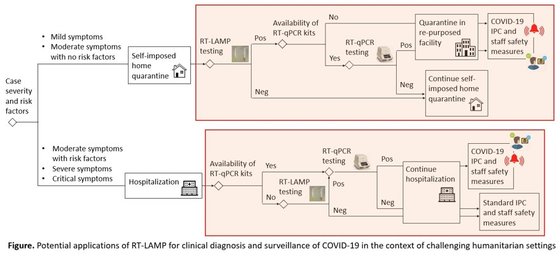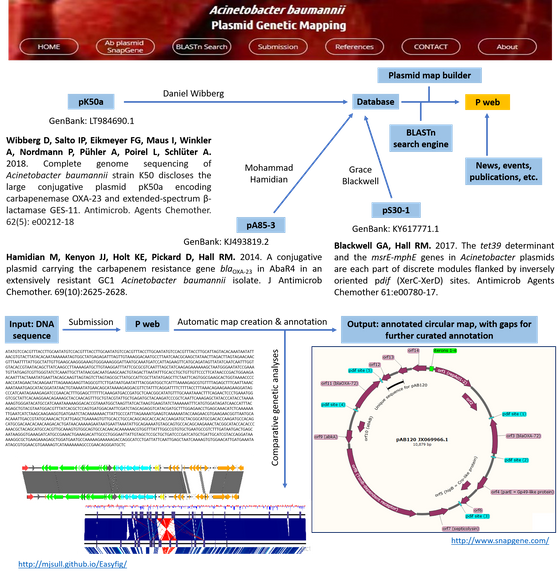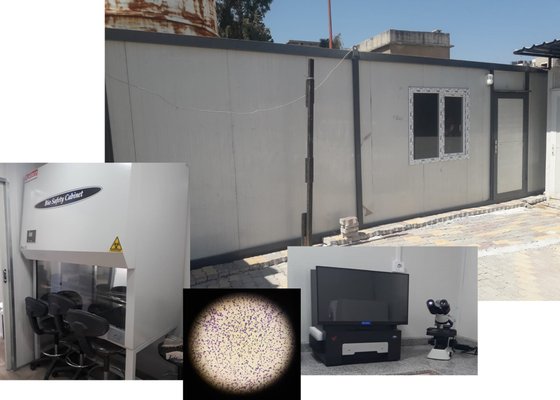OUR WORK
Detection of COVID-19 in areas with low resources is hampered by the lack of Polymerase Chain Reaction (PCR) machines. Reverse transcriptional loop mediated isothermal amplification (RT-LAMP) has recently been proposed as a suitable method for rapid screening for COVID-19 in clinical laboratories with limited equipment. RT-LAMP is a molecular method that can be fully accomplished using a simple water bath or dry block heater. It offers rapid and reliable colorimetric detection of the COVID-19 coronavirus in less than 40 minutes. KARAHCO is prototyping a novel stand-alone tool for COVID-19 resting using RT-LAMP reagents pre-loaded on millimeter-sized well spots connected with capillary channels on standard filtration paper.

This novel sample-to-answer paper-based design aims to provide a simple and low-cost technique to detect COVID-19 at or close to the point of care, by which the wicking abilities of commercial paper-based analytical devices will be leveraged to isolate, amplify, and visually detect the presence of targeted viral RNA. Our tool is optimal for rapid detection of COVID-19 in isolated rural regions, low-income countries, or hard-to-reach zones affected by conflict or humanitarian crises.

Acinetobacter baumannii is a rod-shaped Gram-negative bacterium with remarkable abilities to persist on dry surfaces, acquire resistance to different classes of antibiotics, cross-infect patients, and disseminate in and between medical facilities (https://www.cdc.gov/hai/organisms/acinetobacter.html). This opportunistic pathogen displays a distinguished genomic flexibility to gain novel genetic elements. Resistance to carbapenems, for instance, is mainly due to carbapenem-hydrolysing enzymes encoded by horizontally imported genes.
Worryingly, carbapenem-resistant A. baumannii has been ranked as “Priority 1: CRITICAL” in the world health organisation list of bacteria for which new antibiotics are urgently needed. The emergence of hyper-virulent strains and highly succesful clones of A. baumannii has increasingly been reported. Yet, our knowledge on the molecular mechanisms of A. baumannii pathogenicity and survival skills is limited, pending for further research investigations. KARAHCO has launced a pipeline of bioinformatic services including automated screening for virulence and antibiotic resistance genes in the whole genomes of targeted isolates, manual verification of the genetic contents and annotation of the surrounding segments, strain typing, and a range of in-house designed comparative analyses with our records of clinical and environmental, old and contemporary, local and international reference strains.
Dr. Nabil Karah, the founder of KARAHCO AS, was leading a project to assess the usability of a teleclinical microbiology (TCM) program to provide diagnostic services in hard-to-reach humanitarian settings. The project was supported by Creating Hope in Conflict: A Humanitarian Grand Challenge (https://humanitariangrandchallenge.org/). The project was supervised by a committee of volunteer pathology, infectious diseases, and telemedicine specialists based in Lebanon, Sweden, Norway, the United Kingdom, Canada, and the United States. In addition to empowering local staff, our tele-clinical microbiology module contributed in reducing the need
to dispatch specimens or patients to other locations. As such, the module has opened the door to a durable, scalable solution for the staffing challenge the health system in crisis-affected countries. For further reading, see Karah N, Antypas K, Al-Toutanji A, Suveyd U, Rafei R, Haraoui LP, Elamin W, Hamze M, Abbara A, Rhoads DD, Pantanowitz L, Uhlin BE. Teleclinical Microbiology. Am J Clin Pathol. 2021 Oct 13:aqab160. DOI: 10.1093/ajcp/aqab160 (https://pubmed.ncbi.nlm.nih.gov/34643678/)

